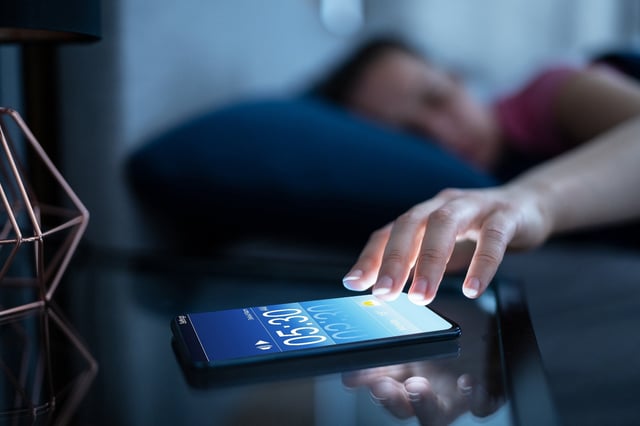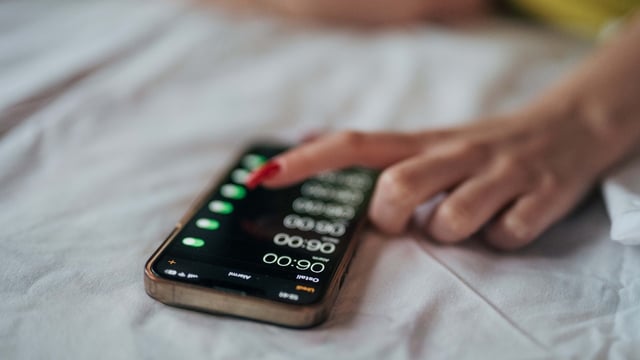Overview
- The study, analyzing over 3 million sleep sessions via the Sleep Cycle app, found that 55.6% of sessions ended with snooze alarm use.
- Snoozers delay getting out of bed by an average of 11 minutes, with heavy users spending up to 20 minutes between alarms.
- Repeated snooze interruptions fragment REM sleep, a critical stage for memory, emotional processing, and overall restfulness, leading to increased grogginess.
- Snooze alarm usage peaks on weekdays, is most common in the U.S., Sweden, and Germany, and least frequent in Japan and Australia.
- Experts recommend setting alarms for the latest realistic wake time and avoiding snooze alarms to improve sleep quality and next-day performance.


